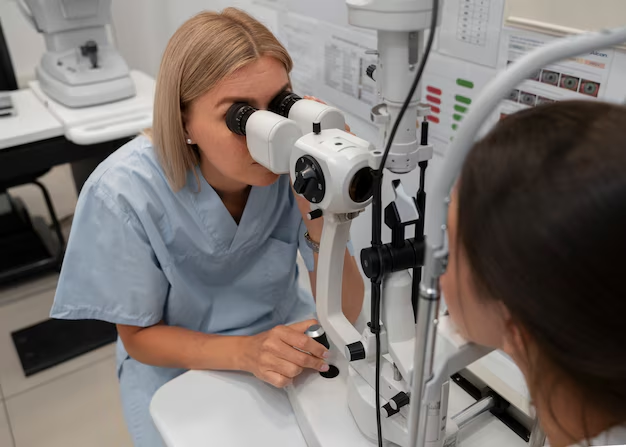Do Cataracts Return After Surgery? Here's What You Need to Know
Imagine waking up one morning to discover the world around you distinctly brighter and clearer. That’s the reality for many individuals following cataract surgery, a common and typically effective procedure for restoring vision loss caused by cataracts. However, a question lingers in the minds of many who undergo this surgery: Can cataracts come back after surgery?
In this article, we delve into this inquiry, explore the facets of cataract surgery, and uncover the truth about whether cataracts can reoccur. We will also address related concerns and practical insights that affect your vision health journey.
Understanding Cataracts and Their Causes
What Are Cataracts?
Cataracts involve the clouding of the eye’s natural lens, leading to diminished vision quality. It’s a condition prevalent among aging populations, but it can also occur due to genetic factors, eye injuries, or systemic conditions like diabetes.
Causes and Risk Factors
Some leading causes and risk factors for cataracts include:
- Aging: The most common cause, as proteins in the lens break down over time.
- Genetics: Family history can increase susceptibility.
- Lifestyle Factors: Smoking and excessive alcohol consumption are known contributors.
- UV Exposure: Prolonged exposure to ultraviolet sunlight can damage the eye’s lens.
- Health Conditions: Diabetes and high blood pressure are associated with an increased risk.
Understanding these factors empowers you to make healthier lifestyle decisions that might delay the onset of cataracts.
The Role of Cataract Surgery
How Cataract Surgery Works
Cataract surgery involves removing the cloudy lens and replacing it with an artificial intraocular lens (IOL). This process effectively restores vision clarity, allowing individuals to regain visual acuity lost to cataracts. The surgery is generally quick, safe, and performed on an outpatient basis.
Success Rates and Expectations
The success rate of cataract surgery is notably high, with the majority of patients experiencing improved vision. However, as with any medical procedure, it’s critical to have realistic expectations and understand that some conditions may affect outcomes.
Can Cataracts Reappear?
Understanding Posterior Capsule Opacification
While cataracts themselves do not return once the natural lens is removed, a condition known as Posterior Capsule Opacification (PCO) can occur. PCO is sometimes dubbed a "secondary cataract," even though it isn’t truly a cataract. It involves the clouding of the lens capsule that holds the IOL in place.
Key Points About PCO:
- Affects a significant number of people after cataract surgery.
- Causes symptoms similar to the original cataract, such as blurred or hazy vision.
- Typically treatable with a simple, quick outpatient procedure called YAG laser capsulotomy.
Symptoms and Diagnosis
If you notice your vision becoming cloudy again after cataract surgery, it’s essential to consult your eye care provider. Common symptoms of PCO include:
- Blurred or hazy vision
- Glare and halos around lights
- Difficulty reading
An eye specialist can diagnose PCO with a thorough eye examination.
Practical Insights Into Post-Surgery Care
Preventing Complications
Adhering to post-surgery care guidelines is crucial in minimizing complications and ensuring optimal recovery. Here are some essential tips:
- Avoid Rubbing Your Eye: This can disrupt healing.
- Use Prescribed Eye Drops: They help prevent infection and reduce inflammation.
- Follow-Up Appointments: Attend all scheduled visits to monitor your healing progress.
Lifestyle Adjustments to Support Vision Health
Even after cataract surgery, it’s vital to maintain eye health through various lifestyle adjustments:
- Wear Sunglasses: Protect your eyes from UV rays to prevent other vision issues.
- Healthy Diet: Incorporate foods rich in antioxidants, which support eye health.
- Regular Eye Exams: These help detect other potential issues early on.
Addressing Common Concerns About Cataract Surgery
Fear of Surgery
It’s natural to feel apprehensive about surgery. However, understanding the procedure’s safety and effectiveness can alleviate concerns. Most patients report experiencing minimal discomfort and return home the same day.
Impact on Daily Life
Cataract surgery often leads to a significant boost in quality of life. Improved vision can enhance daily activities, from reading to driving, and restore a sense of independence.
Cost and Accessibility
Financial considerations are common. Many insurance plans cover cataract surgery, given its necessity for vision restoration. Options like medical financing might also be available for those concerned about out-of-pocket costs.
Conclusion: A Clearer Vision for the Future
While cataracts themselves do not come back after surgery, understanding and addressing Posterior Capsule Opacification is essential for maintaining clear vision post-surgery. Armed with knowledge about cataracts, surgery, and post-operative care, you’re better equipped to navigate the journey towards optimal eye health.
Here’s to seeing the world through clearer lenses—literally and figuratively!
Key Takeaways and Tips for Vision Health 📝
- Cataracts can’t reoccur: Once removed, they do not return. But stay vigilant for PCO.
- PCO Awareness: If vision blurs, consult your eye professional about possible PCO.
- Eye Protection: Always wear sunglasses outdoors to guard against UV radiation.
- Healthy Lifestyle Choices: Eat a diet rich in fruits and vegetables to support eye health.
- Routine Check-Ups: Regular eye exams are crucial for early detection of eye conditions.
- Post-Surgery Care: Follow all care instructions to ensure smooth recovery.
By following these insights and tips, you can ensure your vision remains as bright and clear as possible for years to come! 🌟

Related Articles
- Are Cataracts Curable
- Are Cataracts Genetic
- Are Cataracts Hereditary
- Are Cataracts Nuclear Sclerosis
- Are Cataracts Painful
- Are Ivizia Eye Drops Okay After Cataract Surgery
- Are You Awake During Cataract Surgery
- Are You Awake For Cataract Surgery
- Are You Put To Sleep For Cataract Surgery
- Are You Sedated For Cataract Surgery
